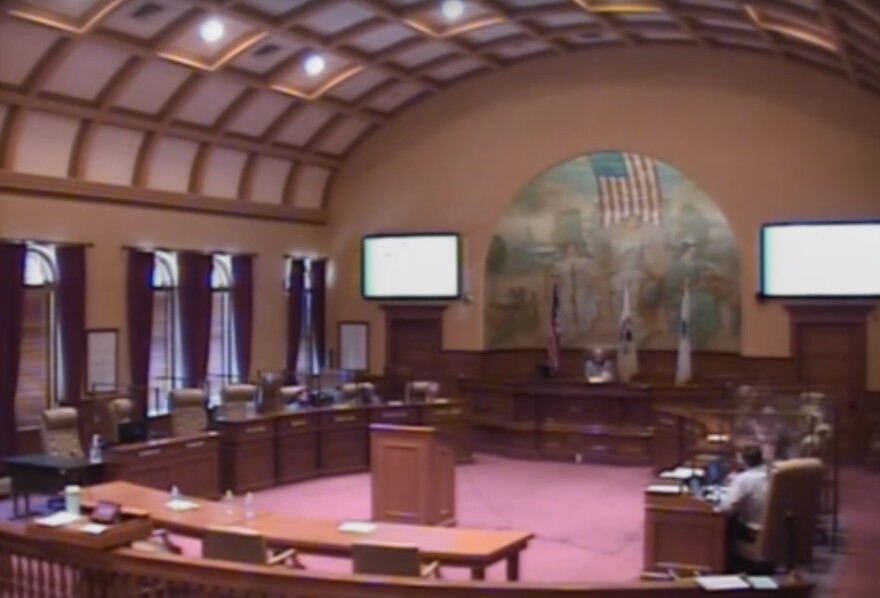The Peoria Planning and Zoning Commission has had its hands full with short-term rental applications, and that’s putting it lightly.
The board’s January meeting took nearly five hours to get through the agenda.
“It is a bit exhausting, because of the amount of them that are coming through,” said board chairman Michael Wiesehan. “The only reason that I feel that there's a lot is because the new regulations that have come through, so all the people that had or have existing STRs out there have to become in compliance.”
Mayor Rita Ali said she expects the initial crush of STR applications will taper off and no policy change regarding the application process is required.
“The process that we developed through an ordinance is that the applications go through the Planning and Zoning Commission, and then certain ones, if they require some additional review, they come to the city council,” said Ali.
Wiesehan said the board anticipated the STR application reviews would take some time at the outset.
“We kind of expected that this would be the norm, and that this would be happening,” he said. “But then as we get into review each case, there are things that pop up, that need to be discussed further and get further clarification on.
“So, I think we're getting a handle on it, and we are looking at different ways to streamline the process. But I don't think that's going to happen too quickly.”
Ali said there were about 60 short-term rentals operating in the city before the ordinance was passed.
“We've contacted all of those individuals to say, ‘you need to register,’ and so most of them have complied,” she said. “We've got 30 approved, about 15 pending, and then maybe 15 out there that we need to bring into compliance.
“Everything's ramped up right now, and I thank the planning and zoning committee members for taking that much time and effort,” said Ali. “They are volunteers, and they are doing a great job. But this is going to slow down. Once we get through those 60, I think it will be only every now and then that an STR might show up. But by then … I think we're pretty much getting close to meeting the need.”
Wiesehan said one of the initial sticking points they’ve faced is entered around a 3% cap on the number of residences that can receive an STR special use permit within any one city neighborhood, and whether applicants can seek a waiver.
“As a commission, you know, we are bound by the ordinances that the city put through, and the city put through that there was a 3% limit. It didn't say, ‘up to a 3% limit.’ It just said 3%,” he said. “So the one (application) that was deferred as we're waiting for some technicalities coming back from the city is: this didn't say less than or 1%. It would be less than a percent even for one property in the quarter of a mile radius, so is that allowed or not?
“That's the question that needs to be answered by the city council and given direction back to us. Is it less than 3%, or is it just 3%? I guess we’re kind of being sticklers on that, but it just says 3% - period.”
Wiesehan said that issue is generally a rare one that would come up case by case, and that most neighborhood areas are big enough where the limit would not be a factor.
He said he thinks for the most part the city has done a good job of letting STR operators know what the expectations are when they’re seeking approvals.
“I just think, specifically in the older parts of the city, that they really need to double-check all their P's and A's – specifically in the cases where there might be shared driveway accesses,” he said. “Make sure that all the information is there ahead of time.”
Wiesehan said the initial issues surrounding STR applications shouldn’t turn people off to pursuing development in the city.
“I think there's one thing that the public really doesn't understand because Peoria has had such a bad rap for so long about being business friendly and being able to grow and inside the city,” he said. “The city has done great strides over the last five years of combining two separate codes, actually three separate codes, into one code and getting rid of almost over 700 pages of redundancy out of the code to make it easier for people to develop inside the city.
“What the citizens need to know is: just come down first. Come down to City Hall, talk to the people you need to talk to. They will help you through the whole process, because that's what we want to do to be able to make it easy for you. We just always find out that things don't happen that way, and (applicants) always come and ask for forgiveness later – which is not the way to do it. We are open to all kinds of things and to try and help people get what they need to get done to get development in the city and move forward.”



